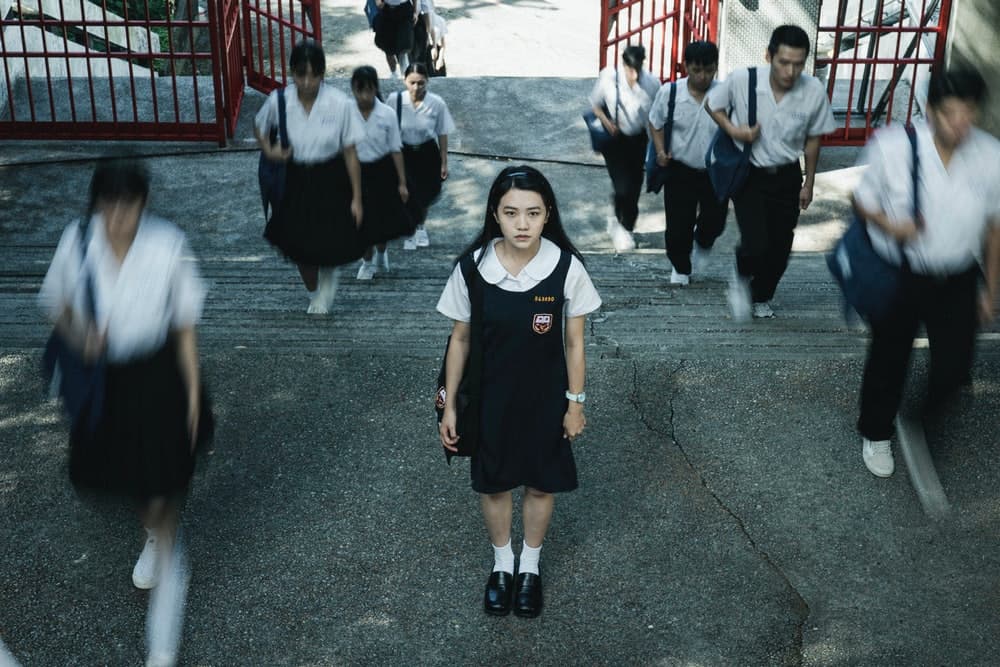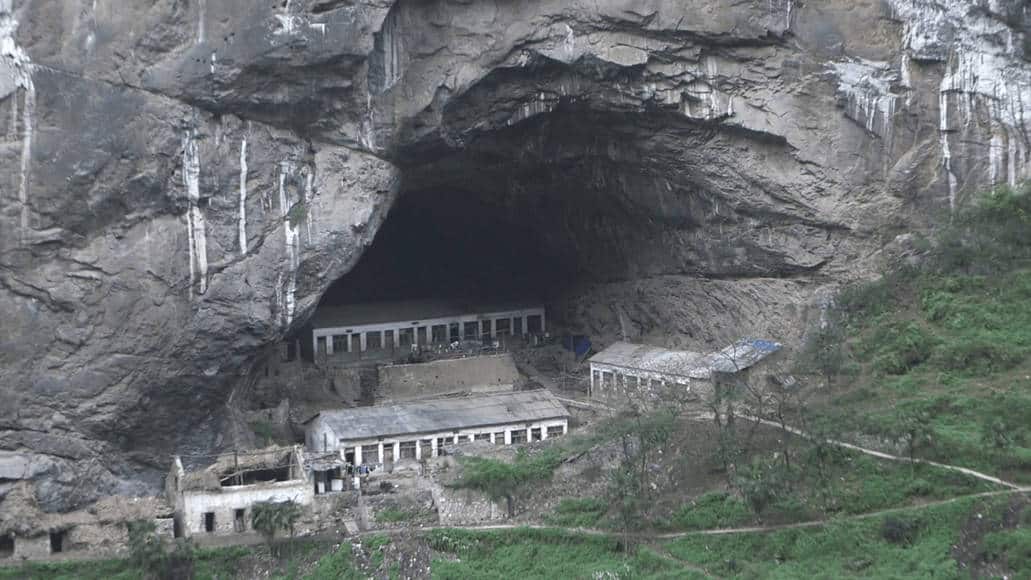Director Geng Jun regroups his dream team for his latest film, “Manchurian Tiger”, a follow up (or sort of) to his previous “The Hammer and Sickle Are Sleeping” and “Free and Easy”, set once again in and around Hegang, Heilongjiang, the director's hometown in the cold Northeast of China, and based on everyday quirky characters of the area.
“Manchurian Tiger” is screening at Udine Far East Film Festival

Before the plot takes shape, we see a few sketches introducing the characters. Xu Dong (Zhang Yu) is an excavator machine operator in a mine of this constantly cold Chinese Northeast, and between a cigarette and an excavation, he enjoys the regular visits of his lover Xiaowei (Guo Yue) who is not the first one as we will discover later! Despite her insistence, he is firmly and melancholically convinced that his marriage is the only thing he has left in his life. On the other hand, his heavily pregnant wife Mei Ling (Ma Li) seems to be the one that keeps the marriage together with steely determination. With the same determination she instructs Xu Dong to get rid of their big affectionate fluffy dog to prepare for the baby arrival, but he struggles to find someone who will buy the animal for the pure pleasure of having it instead of … eating it. As a last resort, he leaves it to builder Ma Qianli (Zhang Zhiyong) who has a spacious courtyard and a reputation of being a successful businessman.
In reality, Ma after a first lucky enterprise, has failed badly in his second attempt at business and is now chased by creditors and debt collecting thugs, not to mention all his family and friends who had invested in him and lost their money. One night, to appease two debt collectors at his door, he offers them a succulent roast dinner made of the poor old dog. When Xu Dong finds out, he gets on a quest for vengeance or, at least, for compensation. Meanwhile Mei Ling, after finding a long, dyed hair on Xu Dong's clothes, is visiting all his previous lovers with the ferocious intentions of finding out who the hair belongs to.
Geng Jun has created his own very distinctive style of black comedy / drama that in some way can remind of Swedish director Roy Andersson. A deadpan, dry humor courses through his work, and his peculiar personages with their vignette-like stories talk allegorically about Chinese society at large (like in his “Free and Easy”) or – like here – about a more intimate and subjective tangle of human desires and incontrollable appetites (yes, even for dogs!). All the characters of “Manchurian Tiger” are trapped into a vicious circle of desires, and the harsh consequences of blindly pursuing them. Xu Dong is incapable to stop searching validation through serial cheating. Mei Ling wants to keep her husband at all costs and treats him like a naughty child. Ma Qianli is ruined by his craving for money and is trapped in a life cul-de-sac and eventually, he and Xu Dong will find a point of contact in their desperation. Other bizarre but tender portraits are provided by secondary characters: a friend of Xu Dong has some mental disorder, loves pinching friends' cheeks and write poems that cannot sell, while one of Ma's ex-employees brings him a bit of comfort in the shape of a kite, a bag of fried fish and little money from his savings.
The pace of the film is very slow, especially because the director's trademark comedy is based on letting it sink and observing the motionless faces of the characters involved. One other recurrent trick here is having the character talking in the direction of the camera, eye directing staring at the audience, giving the impression of “breaking the fourth wall”, while instead they are talking to their interlocutor. It is a rather intense and almost hypnotic effect. Having said that, the film does feel all his 2 hours of duration, as all those pauses can be tiresome after a while and loose a bit of efficacy if repeated too often.
The cast of “Manchurian Tiger” is top notch, with stellar experience. Zhang Yu has on his portfolio some major Chinese films like “Dying to Survive”, “A Cool Fish”, “Back to The Warf” and “An Elephant Sitting Still” and he is very apt, with his subtly expressive face, as the confused Xu Dong, but for me the best was Zhang Zhiyong as the dramatically funny Ma Qianli who is taking all sort of stones (literally) life throws at him, and is followed by a surreal Greek Chorus of family members, reminding him at all times that he owes them money. Guo Yue (seen in “Kaili Blues” and “A Land Imagined”) in the role of the lover also leaves an impression and I wished her character had been developed more and used in full. Most of the other actors were also familiar faces as seen in “The Hammer and Sickle Are Sleeping” and “Free and Easy”. Wang Weihua's photography perfectly conveys the bleak, icy climate, working with the white, diffused light to isolate the characters in the shadowless atmospheric backdrop of an industrial flatland. The mood is lifted by an interestingly variated score by Cheng Xiaoshu, from jazzy to classic comedy style.
Mixing black humour with social realism, Geng Jun has shaped a style of storytelling that is rather unseen and fresh in the indie Chinese cinema.
















